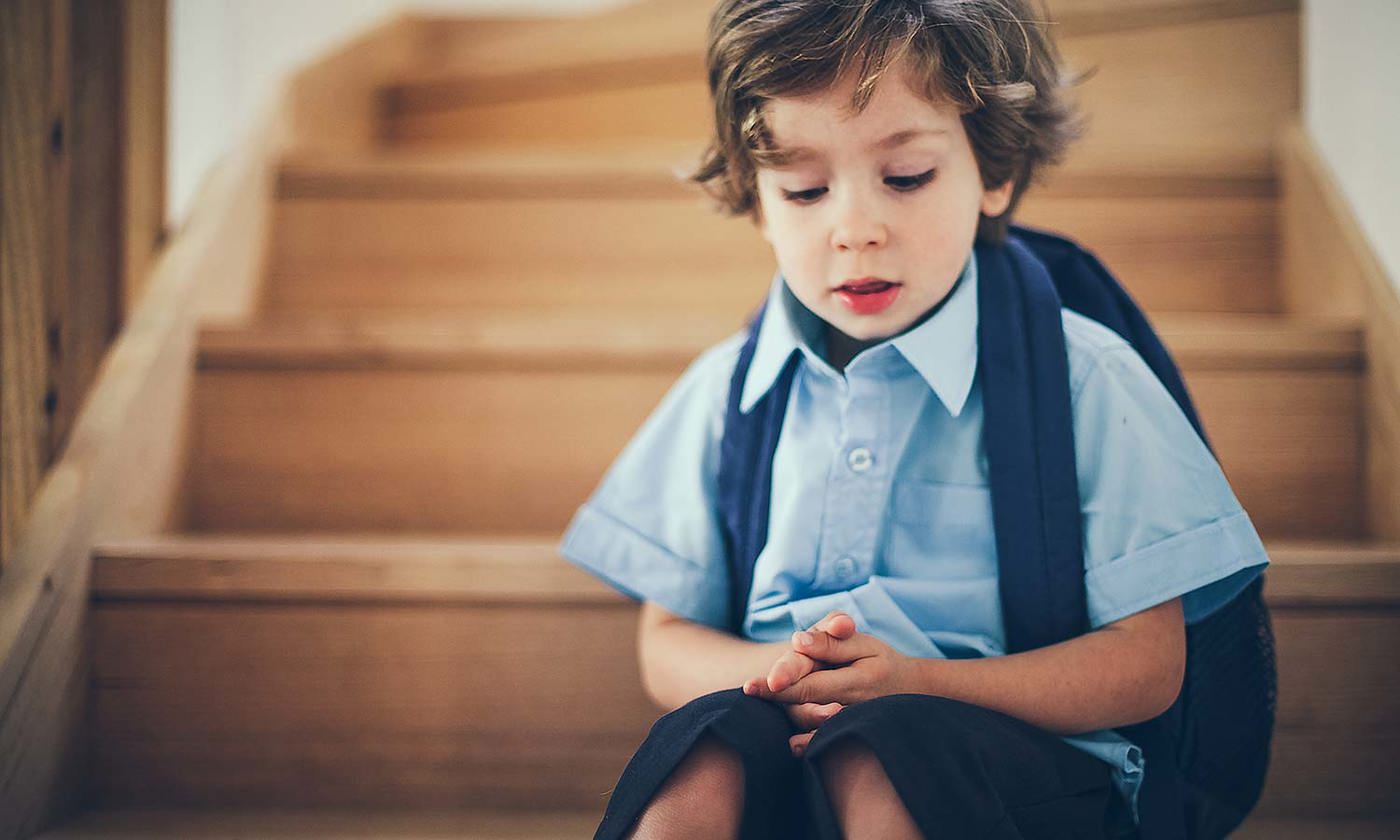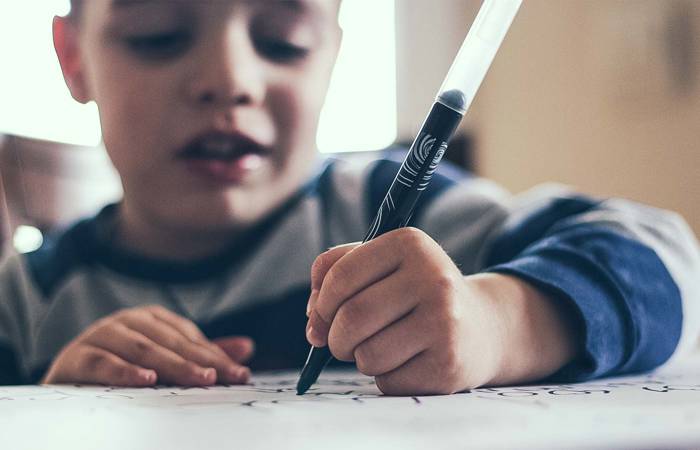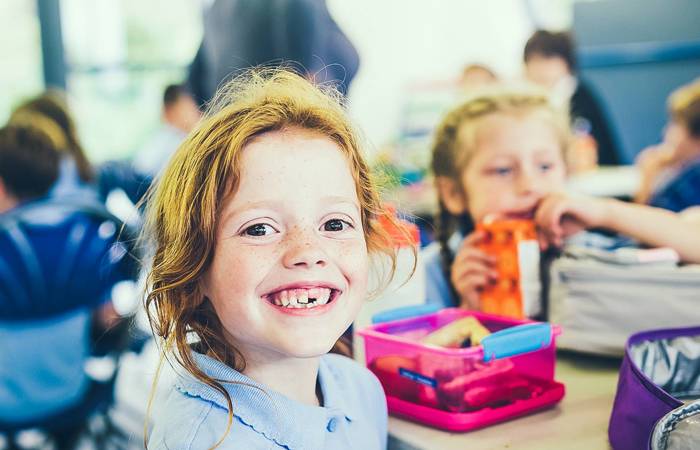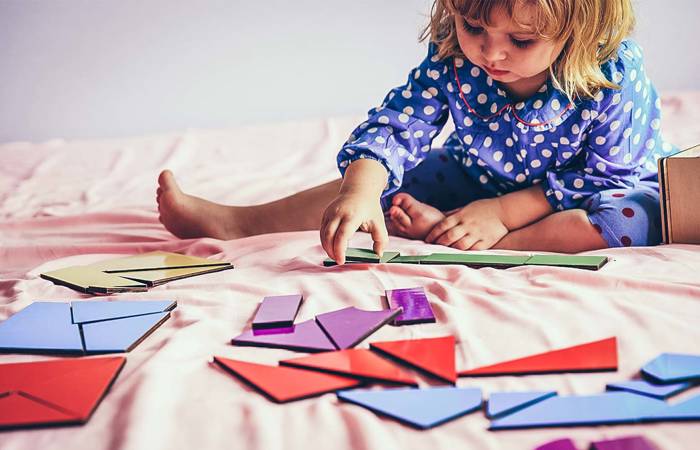Like what you see?
Sign up to receive more free parenting advice.
Thank you for subscribing to our newsletter!
Early Learning
Too early? Too late? Just right? The subject of school readiness sometimes feels like a Goldilocks parable. Even experts admit that in many families, the subject of school readiness is a hot topic.
Professor Frank Oberklaid, OAM, from the Murdoch Children’s Research Institute is a paediatrician, internationally recognised researcher, author, lecturer and consultant who has written two books and over 200 scientific publications.
For decades he's heard parents wonder if their children are prepared for this next stage: school. The problem with the very question, Professor Oberklaid says, is that there is no one right answer, partly because at age four or five there is still quite a bit of variability in children's development.
"It is not linear. It happens in spurts and plateaus," Professor Oberklaid says.
Assessing physical and cognitive readiness
Professor Oberklaid says the issue is never black and white, he looks at school readiness from a number of perspectives.
“School readiness can be categorised into being physically ready, or cognitively ready," he says. “Ideally, children will be toilet trained, as most prep centres don't think that that's their task. So that's a physiological readiness.
“There’s physical readiness too: you'd like them to be reasonably independent at things like putting on clothes and shoes and are not totally dependent on adults for that," Professor Oberklaid says.
Cognitively speaking, children aren’t expected to be able to read before starting school, but they are expected to have some level of pre-literacy skill.
"You want them to understand that books have meaning, as one example,” he says.
Teachers will say that they can see the kids who have been to preschool [known as kindy in some parts of Australia] and those who haven’t. My advice to all parents is to make sure that their child has a preschool experience, as it helps them so much with things like turn taking and social skills.Professor Frank Oberklaid
Stay up to date with the latest news and articles from First Five Years
Thank you for subscribing to our newsletter!
The importance of social skills
For a lot of families, it is their child’s less developed social skills that can be the biggest barrier to a successful start at school.
"You see kids at school who struggle from the beginning," Professor Oberklaid says.
Regardless, he believes the first school year is not the time for parents to have high expectations of their children's achievements. Instead, it's a year for consolidating what they have learned in a preschool environment.
“Teachers will say that they can see the kids who have been to preschool [known as kindy in some parts of Australia] and those who haven’t. My advice to all parents is to make sure that their child has a preschool experience, as it helps them so much with things like turn taking and social skills,” Professor Oberklaid says.
Listening to the voice of experience
Of course, as with any big change in a child's life, the start of school can sometimes bring unwanted side effects. Professor Oberklaid doesn’t believe most new school kids experience significantly regressive behaviours, but says there’s always variability between children.
“You do see some kids who are tired and irritable when they get home. Parents should expect it, but just be flexible and understand that it might happen. Kids will adjust," he says.
If things aren’t coming together during that first year, or if a preschool teacher suggests that a child isn't ready for that next step, Professor Oberklaid believes parents should take that advice seriously.
"There are some parents who are reluctant to admit their child is not ready, and a small number who believe that delaying the children's start in school is a personal slight, or loss of esteem to their own parenting," he says.
“I think the best advice is to rely on the opinion of an experienced kindy teacher. All the tests in the world won't help figure this out; at the end of the day it’s better to go on a mix of advice from the teacher and the parent’s own gut feeling," Professor Oberklaid says.
He believes that starting school later, or even repeating that first year if it’s been tough going, is sometimes a smart move.
“Some schools have a policy of never keeping children down. My view is that if there is any uncertainty I prefer them to start school a year later when they are socially more confident and have more skills. The early years are the best time to do that,” Professor Oberklaid says.
What you want to avoid, Professor Oberklaid says, is wavering on the decision and realising down the track that you’ll need to keep the child back at a later stage of their schooling.
“Repeating a year later in school is a whole different ballgame to repeating kindy or prep. It is much harder on social skills to do it later,” he says.up kids,” Professor Oberklaid says.
I think the best advice is to rely on the opinion of an experienced kindy teacher. All the tests in the world won't help figure this out; at the end of the day it’s better to go on a mix of advice from the teacher and the parent’s own gut feeling.Professor Frank Oberklaid
Taking a cue from your child
Of course, our children's enthusiasm for what lies ahead also plays a role in school readiness. Some children are dying to get to school, and will hit the ground running. Others are more hesitant. For these children it pays to think about how you approach the subject, particularly in the holiday period leading up to this big life event.
Some parents have commented that for a child who is anxious about starting school, it's difficult when every relative or friend of the family uses it as a way to make conversation over December and January. Well intended, of course, but not always helpful.
"We should let the kids determine the pace and level of energy and excitement about starting school,” Professor Oberklaid says, noting that some parents make such a big deal about the beginning of school that their children get anxious about the expectations on them.
"Play it low key. If they are excited about the new backpack or lunchbox respond to that, but not the other way around," he says.
Finally, there is one other consideration as a new school year rolls around: this can also be a tough time for parents.
“It's a big transition for parents as well as kids, so I always congratulate parents on getting to this stage. All parents go through an inevitable psychological transition as their young child goes to school. Lots of parents have a good cry. It's just part and parcel of bringing







